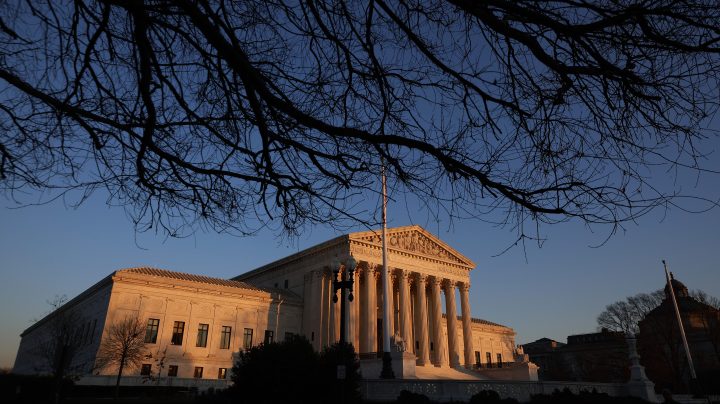
Supreme Court hears case on Navajo Nation water rights

The seven Colorado River Basin states have been unable to agree on a deal to conserve the massive amount of water needed to keep reservoirs stable. But more than 30 tribal nations also have a legal claim to that embattled resource — including a dozen whose water rights have never been officially quantified or settled.
On Monday, the Navajo Nation argued before the Supreme Court that the government has a duty to fulfill its treaty right, even as water levels dwindle.
In 1908, the Supreme Court ruled that when the federal government created reservations, it also reserved enough water for tribal nations to sustain themselves. So why are some tribes still arguing their water rights in court?
“It’s a combination of racism and colonialism,” said Andrew Curley, a professor of geography at the University of Arizona and a citizen of the Navajo Nation.
Despite that 1908 ruling, he said policymakers continued to exclude tribes while divvying up resources like the Colorado River.
“The only way we could get the attention of the state governments is through litigation,” Curley said.
That litigation is expensive, said attorney Heather Whiteman Runs Him, who helped settle her own tribe’s water rights in 2010. The Crow Tribe had to hire lawyers, hydrologists and lobbyists.
“Very involved, very time consuming and, you know, somewhat speculative because you can never tell just what a court is going to do, right?” she said.
Not all tribes can afford that. And without adequate water resources and infrastructure, tribal economies suffer, according to Heather Tanana, an assistant professor at the University of Utah who’s also Navajo.
“Because of health costs, time spent collecting bottled water, you know, premature deaths. There is a real significant cost,” she said.
Before the Supreme Court on Monday, the federal government agreed that the Navajo Nation’s water right exists, but argued that it doesn’t have a duty to enforce the right.
There’s a lot happening in the world. Through it all, Marketplace is here for you.
You rely on Marketplace to break down the world’s events and tell you how it affects you in a fact-based, approachable way. We rely on your financial support to keep making that possible.
Your donation today powers the independent journalism that you rely on. For just $5/month, you can help sustain Marketplace so we can keep reporting on the things that matter to you.

















